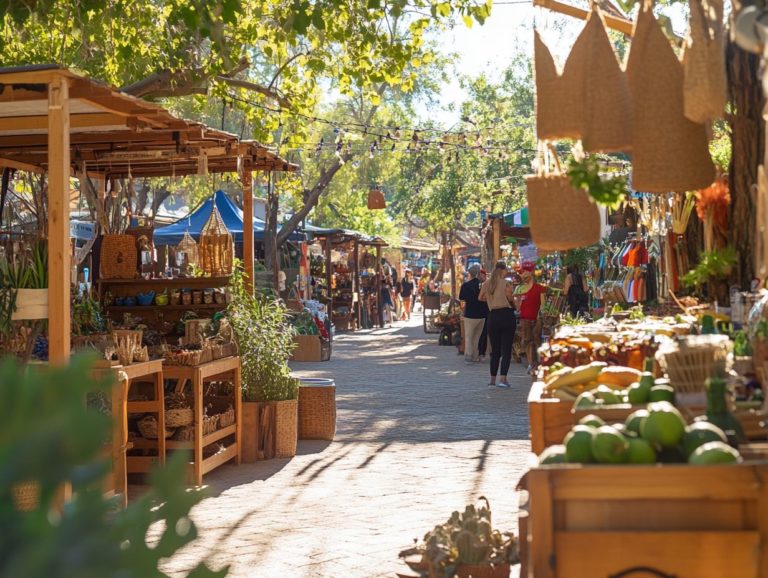The Role of Community in Responsible Travel
Traveling presents you with extraordinary experiences, yet it also carries responsibilities that can profoundly affect local communities.
Understanding how tourism influences these areas is essential for nurturing a positive relationship between you, the traveler, and the residents. Let s explore community-based tourism and discover how it benefits both travelers and local cultures!
This article delves into the concept of community-based tourism, showcasing its benefits and the ways it can enhance local economies and cultures. It also offers practical tips for supporting communities during your travels while addressing the challenges of responsible travel and how to overcome them. Discover how your journey can truly make a difference!
Contents
- Key Takeaways:
- The Importance of Responsible Travel
- What is Community-Based Tourism?
- How Communities Benefit from Responsible Travel
- Ways to Support Local Communities while Traveling
- Challenges and Solutions for Responsible Travel
- Frequently Asked Questions
- What is the role of local communities in responsible travel?
- Why is community involvement and engagement important in responsible travel?
- How can community involvement and sustainable practices contribute to sustainable tourism?
- What are some examples of community-led initiatives and community-based tourism in responsible travel?
- How can tourists support local communities in responsible travel?
- What are the potential benefits of community involvement and sustainable tourism in responsible travel?
Key Takeaways:
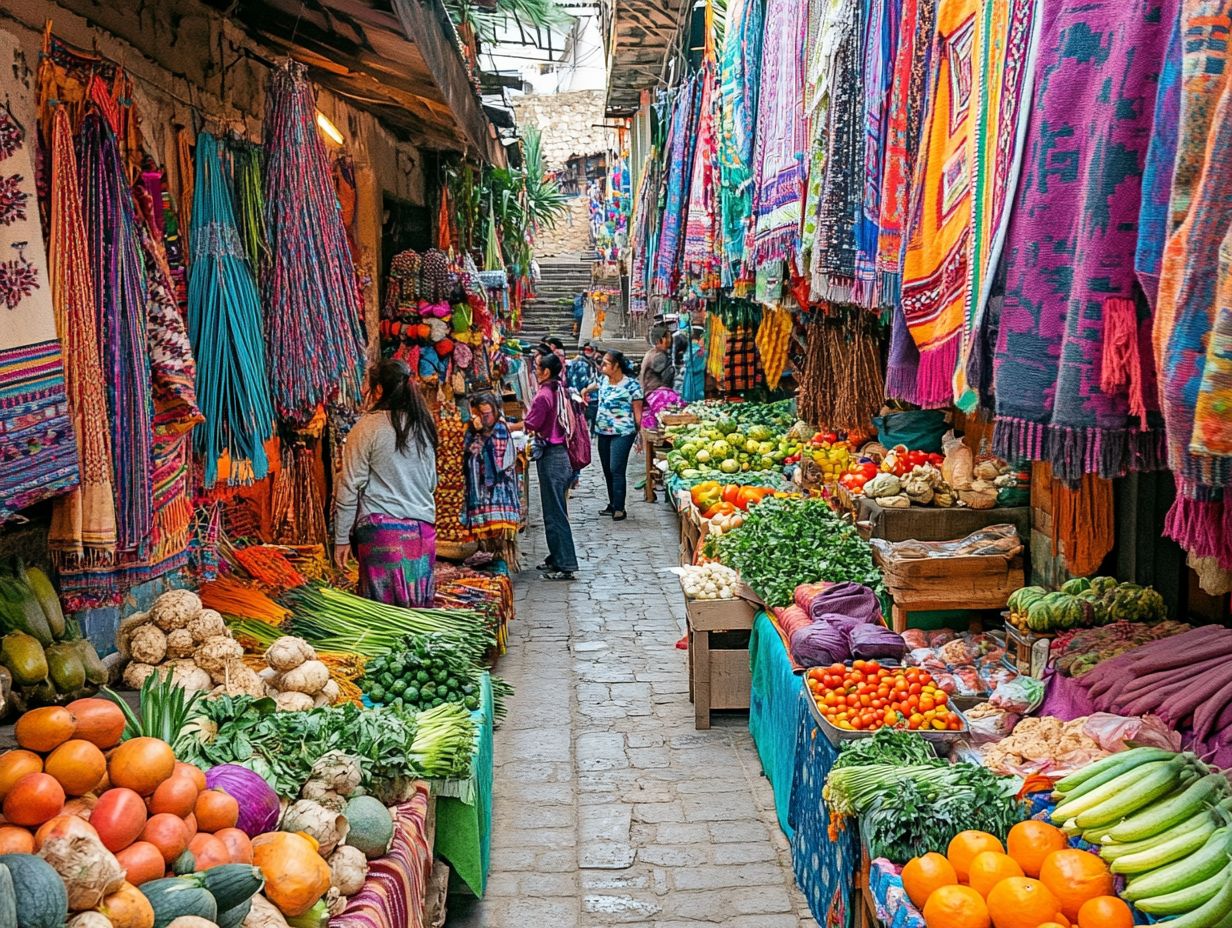
- Responsible travel has a significant impact on local communities, both economically and socially.
- Community-based tourism empowers and supports local communities by involving them in the tourism industry.
- To support local communities while traveling, choose sustainable and locally-owned businesses, participate in cultural activities, and be mindful of the environment.
The Importance of Responsible Travel
Responsible travel transcends mere trendiness; it represents a vital shift towards a more ethical form of tourism that prioritizes the well-being of local communities and the environment.
As travel that protects the environment and supports local communities gains traction, it’s essential for you to recognize that your choices can significantly influence cultural heritage, local ecosystems, and the economy and social life of the places you visit.
Given the pressing challenges of climate change and the biodiversity crisis, now, more than ever, embracing responsible travel practices is crucial! This approach emphasizes active community engagement and social responsibility, creating a harmonious relationship that benefits both visitors and host communities alike, as highlighted in the role of social media in responsible travel.
Understanding the Impact of Tourism on Communities
Tourism wields a profound influence over local communities, shaping their economic growth, cultural pride, and environmental stewardship while also presenting a range of challenges that deserve attention.
When visitors flood in, they create job opportunities and invigorate local businesses, providing a significant boost to the economy. Take Bali, for example; tourism has been an essential lifeline, driving infrastructure development and enhancing public services. However, this same surge can lead to environmental degradation, as evidenced by the Great Barrier Reef, where over-tourism poses a serious threat to marine ecosystems.
On a social level, tourism has the potential to foster intercultural exchange and understanding, yet it can also disrupt the traditional lifestyles of local residents, igniting debates about cultural preservation versus economic gain. Therefore, communities are encouraged to embrace sustainable tourism strategies that strive for a harmonious balance, ensuring the protection of both their rich heritage and their promising future.
What is Community-Based Tourism?
Community-based tourism (CBT) is a captivating tourism model that invites local communities to take the reins in planning, developing, and managing tourism activities. This approach creates unique experiences that honor local interests and cultural heritage while championing sustainable practices.
By engaging with CBT, you not only support a sense of community ownership but also facilitate meaningful cultural exchanges between travelers and local residents. This enriches your experience as a visitor and significantly contributes to the community’s economic growth and social vitality. To deepen your understanding, explore the key principles of responsible travel.
Defining and Exploring the Concept
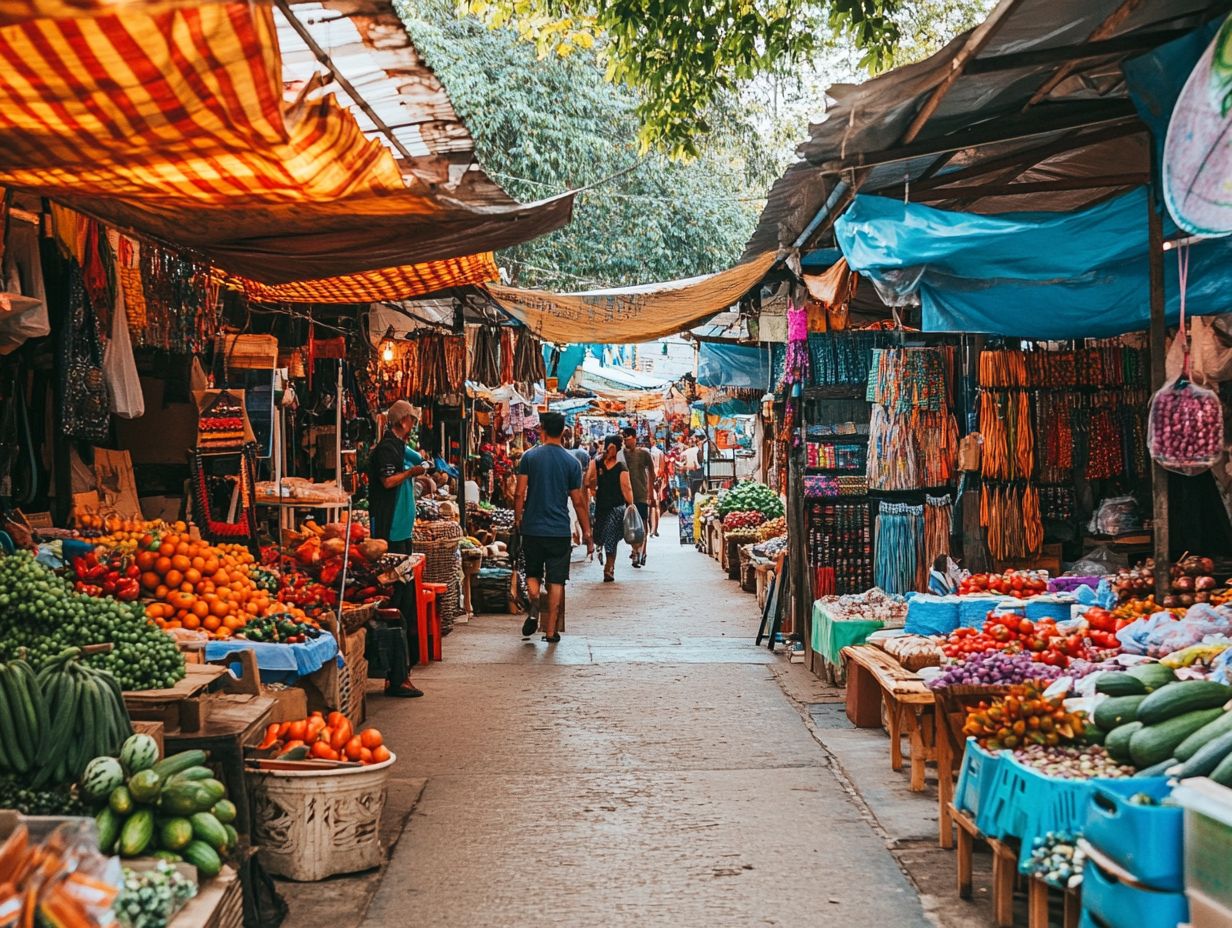
Defining community-based tourism (where local communities manage and benefit from tourism) invites you to appreciate its involving the community approach, which seamlessly aligns tourism initiatives with the genuine needs of local communities. This ensures that both visitors and hosts benefit from the experience.
This method nurtures a sense of ownership among community members. It inspires them to actively participate in the planning and execution of tourism activities. By weaving in local culture, traditions, and natural resources, community-based tourism enhances the visitor experience while simultaneously protecting the environment. Additionally, understanding the role of eco-conscious travel in conservation can further support these efforts.
Local stakeholders who are involved in decision-making processes are far more likely to support eco-friendly methods that preserve both local ecosystems and cultural heritage. Ultimately, this model fosters economic benefits, enriching the community while crafting authentic experiences that resonate with travelers in search of meaningful connections through responsible travel.
How Communities Benefit from Responsible Travel
You have the power to transform communities through responsible travel. The economic benefits are clear, with increased income and employment opportunities creating a more vibrant local economy.
Socially, it fosters a sense of pride and cohesion among residents, strengthening community bonds. Plus, the environmental advantages are invaluable; conservation efforts enhance local sustainability and protect the ecosystems that communities rely on.
Each of these aspects contributes to overall growth, ensuring not just the longevity of local ecosystems but also an improved quality of life for all community members.
Economic, Social, and Environmental Benefits
The economic, social, and environmental benefits of responsible travel go far beyond mere financial gains; they embody a commitment to social responsibility and environmental stewardship, significantly enriching community engagement.
By prioritizing ethical travel practices, you can make a meaningful impact on local economies, support underserved communities, and champion sustainable tourism initiatives. Take Kerala Tourism in India, for example. They have skillfully integrated eco-friendly practices while generating local employment, turning tourism into an effective tool for poverty alleviation. Understanding the role of responsible travel in climate change can further enhance these efforts.
Organizations like G Adventures further demonstrate this commitment by focusing on small group experiences that ensure tourism dollars directly benefit the local population. These examples collectively illustrate how responsible travel matters more than ever, striking a harmonious balance between profit, people, and the planet, ultimately paving the way for a better world for future generations.
Ways to Support Local Communities while Traveling
Supporting local communities while traveling requires you to embrace tourism strategies that prioritize local businesses and encourage authentic interactions with residents. By doing so, you ensure that the economic benefits of tourism flow directly to the community members who need them most, creating a more enriching experience for both you and the locals.
Practical Tips and Suggestions
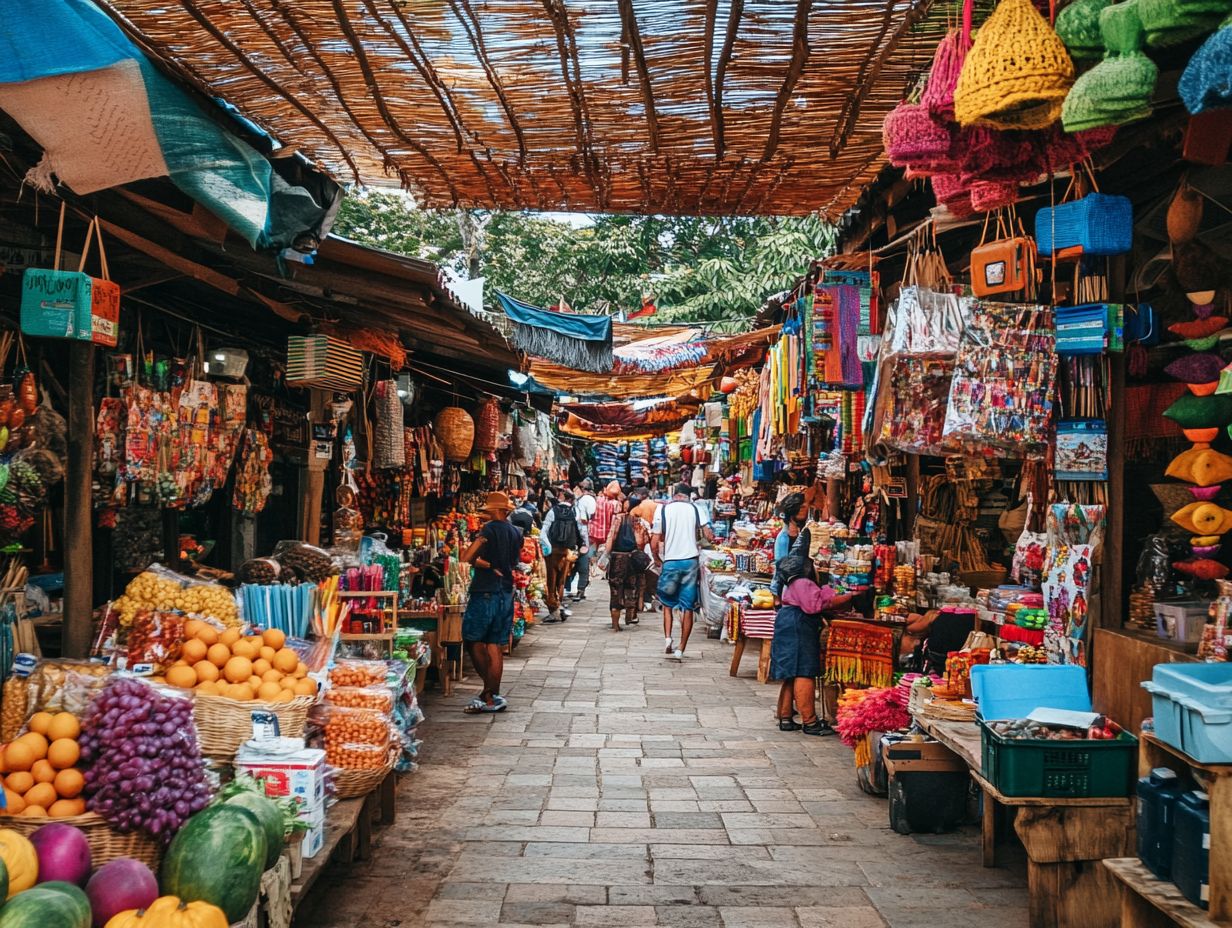
Practical tips for supporting local communities while traveling include engaging with local actors, understanding cultural nuances, and choosing eco-friendly options, such as accommodations that utilize renewable energy.
You should actively seek out experiences that promote local tourism, like local workshops or traditional craft sessions, which not only deepen your appreciation of cultural heritage but also foster connections with artisans. Opting for restaurants that source ingredients from local farms will enhance your culinary experience and support the regional economy in the process.
It s essential to respect local customs and etiquette, as this can enrich your interactions and lead to meaningful exchanges. Participating in eco-friendly tours that emphasize wildlife conservation offers you a deeper understanding of environmental responsibility, allowing you to enjoy nature while positively impacting the communities you visit.
Start your journey today and make a difference in the communities you visit!
Challenges and Solutions for Responsible Travel
Challenges in responsible travel often stem from a lack of understanding of the local context. This underscores the necessity for smart tourism rules and environment-friendly actions that can effectively address these barriers.
Addressing Common Barriers and Overcoming Challenges
Addressing common barriers in responsible travel requires a commitment to working together to learn and a focus on aligning tourism initiatives with local interests. This approach helps reduce negative effects on communities.
Building partnerships enriches the tourism experience and creates a landscape of benefits for everyone. This collaborative method enhances your experience through authentic interactions and supports community development by ensuring that local voices are recognized and valued. Additionally, understanding the role of travel in environmental conservation can further enhance your impact while exploring new places.
Engaging in initiatives like community tourism highlights practices that prioritize protecting the environment and cultural heritage. By understanding the unique needs and aspirations of local populations, you can make decisions that elevate tourism and safeguard the essence of the communities you explore.
Frequently Asked Questions
What is the role of local communities in responsible travel?
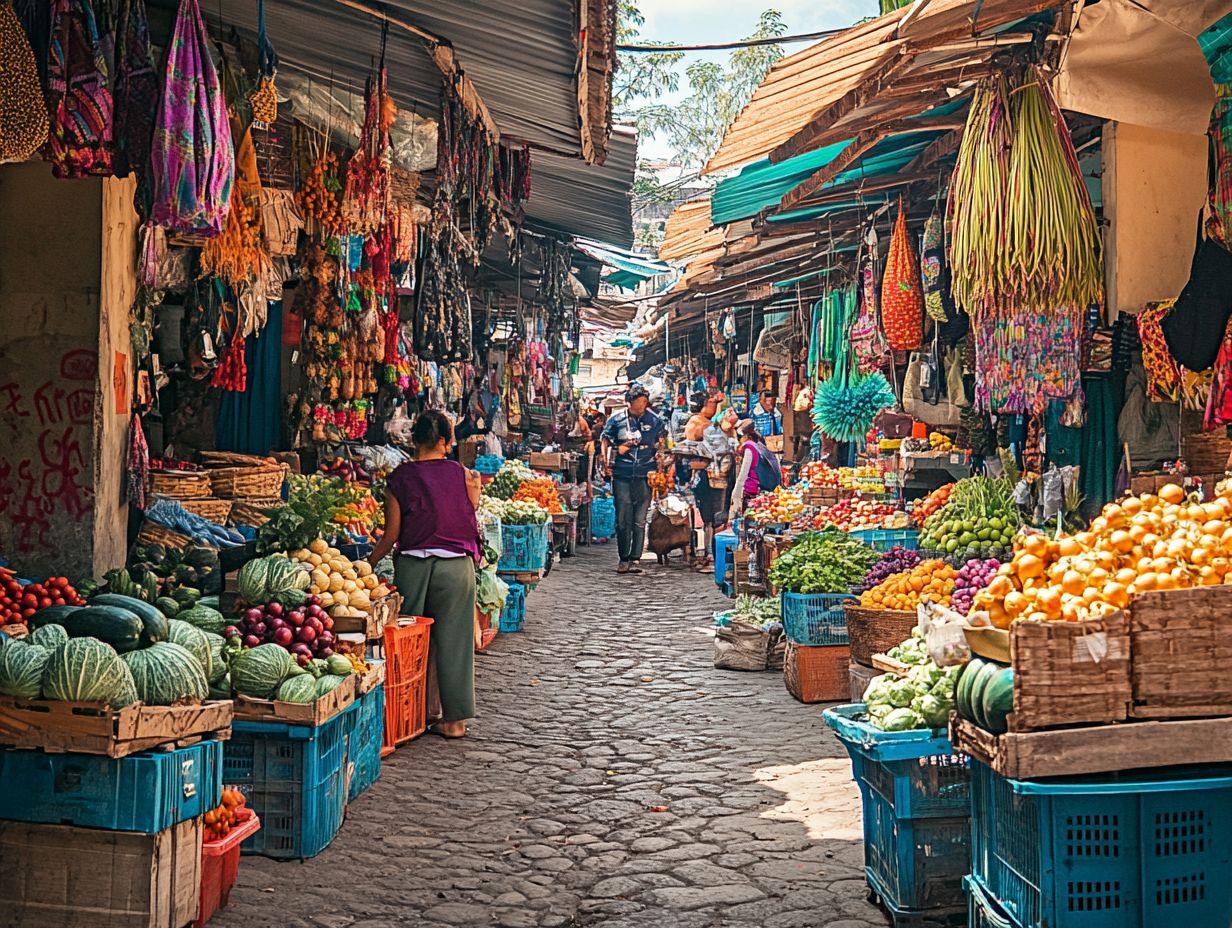
Communities play a vital role by participating actively in tourism. They help preserve local culture and resources, promote responsible behavior among visitors, and support community-led initiatives.
Why is community involvement and engagement important in responsible travel?
Community involvement is crucial because it ensures local residents have a say in developing and managing tourism activities. It helps distribute tourism’s economic benefits more equitably among community members.
How can community involvement and sustainable practices contribute to sustainable tourism?
Community involvement promotes responsible practices that minimize negative impacts on the environment and culture while providing economic and social benefits to the community.
What are some examples of community-led initiatives and community-based tourism in responsible travel?
Examples of community-led initiatives include homestay programs, community-based tourism projects, and local tour guide associations. These initiatives empower local communities to have a greater stake in the tourism industry and promote sustainable development.
How can tourists support local communities in responsible travel?
Tourists can support local communities by being respectful visitors, backing local businesses and initiatives, and seeking authentic cultural experiences that benefit the community.
What are the potential benefits of community involvement and sustainable tourism in responsible travel?
The potential benefits include economic empowerment, preservation of cultural heritage, and improved relationships between tourists and locals. It promotes sustainable tourism practices, leading to long-term benefits for the community and the environment.

